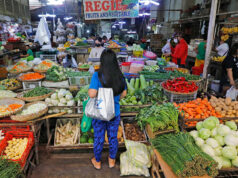Auto industry counting on 2019 spending surge due to polls
AUTOMAKERS expect a sales recovery in 2019, counting on the traditional boost to consumer spending provided by elections.
“We are positive about next year. So whatever is the figure for this whole year, project better figures next year, at least a conservative 10% [growth] over this year,” Chamber of Automotive Manufacturers of the Philippines, Inc. (CAMPI) president Rommel R. Gutierrez told reporters on the sidelines of the 7th Philippine International Motor Show held last week in Pasay City.
Also a first vice-president at Toyota Motor Philippines Corp., Mr. Gutierrez, a lawyer, added that the expected increase in 2019 takes into consideration the weakness of the current year.
The group expects car purchases in 2018 to fall to about 383,106-361,822 units, a decline of 10-15% from 2017.
In the nine months to September, auto sales dropped 13.8% year-on-year to 261,057 units.
CAMPI Vice-President and Truck Manufacturers Association President Dante C. Santos also cited next year’s elections as a driver, saying polls usually elicit “a positive change in psychology” among consumers.
“We have an industry capable of addressing any increase in demand. We just have to adjust our orders,” he added.
Asked if 2018 will affect the industry’s target of hitting sales of 500,000 units by 2020, Mr. Santos said: “Anything that happens in 2018 may prolong it a little bit but will not remove the number.”
Mr. Santos, also a first vice-president at Mitsubishi Motors Philippines, Corp., said that the outlook so far is that the 2020 target is “doable,” making the Philippines a key auto market in Southeast Asia.
Achieving such sales levels will mean “we will no longer be junior operators in the Philippines. We’ll be a mature industry.”
The group blamed this year’s drop on excise taxes imposed at the start of the year, high inflation and more expensive fuel. If the decline carries through the full year, it would mark the first contraction in seven years. — Janina C. Lim



